In 2003, right at the heart of the European Union, the University of Luxembourg (UL) was founded. UL is a multilingual, international research university, for whom research on migration has always been a priority. Here at the UL, migration-related research benefits from the interplay of several factors: the geographical location of Luxembourg, the involvement of the UL in the University of the Greater Region, the multicultural campus-feel created by students from around 115 countries and researchers from about 20 countries, as well as our multilingual teaching together develop a climate of open-mindedness and cultural intelligence.
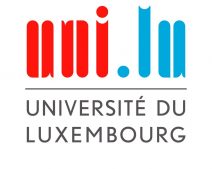

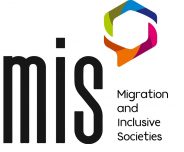
FHSE conducts a wide range of research in the fields of humanities, behavioural sciences, education and social work, social sciences, geography and architecture to understand and shape change. Through its key research area “Migration and Inclusive Societies” (MIS), FHSE looks at representations of migration in culture, history and literature, it addresses key issues such as migration and identity, multilingualism, education with respect to health and behaviour, social inequalities, and sustainable development to contribute to inclusive, open and resilient societies.
The Key Research Area “Migration and Inclusive Societies” (MIS) at the University of Luxembourg conducts innovative research, teaching and outreach in migration studies with the aim of promoting inclusive societies. By fostering disciplinary and methodological diversity, MIS strives to find the most appropriate ways to engage scientifically with the complexity of migration processes and of inclusion. MIS covers five working areas:
- global connectivity and socio-economic participation
- diversity and social cohesion
- cross-border movement and citizenship
- multilingualism and educational challenges
- border experiences and cultural identities
Reviewing Commitee
- Agnieszka Radziwinowiczówna
- Amalia Gilodi
- Ana Margheritis
- Anders Neergaard
- Andreas Pott
- Ann Singleton
- Anna-Lisa Müller
- Birgit Glorius
- Catherine Talleraas
- Christine Lang
- Christof Van Mol
- Claudio Bolzman
- Daniela Vintila
- Elif Keskiner
- Emilia Kmiotek-Meier
- Erik Snel
- Evren Yalaz
- Gianni Damato
- Harlan Koff
- Isabelle Albert
- Izabela Grabowska
- Janine Dahinden
- Jean-Thomas Arrighi
- Jens Schneider
- José Oliveira
- Justyna Salamońska
- Katarina Hollan
- Laura Morosanu
- Laura Muresan
- Lisa Berntsen
- Lorenzo Vianelli
- Lucas Oesch
- Luicy Pedroza
- Lukas Mellinger
- Majella Kilkey
- Marco Martiniello
- Maria Fonseca
- Maria Schiller
- Marie Sandberg
- Marta Bivand Erdal
- Marta Kindler
- Nicolai Netz
- Oana Ciobanu ‘
- Pieter Bevelander
- Rinus Penninx
- Rosa Iannone
- Samuel Schmid
- Sarah Scuzzarello
- Sebastian Rinken
- Stefan Manser-Egli
- Stefania Marino
- Steffen Pötzschke
- Tineke Fokkema
- Tiziana Caponio
- Volha Vysotskaya
- Wiebke Sievers
Conference Committee
University of Luxembourg
Prof. Dr. Birte Nienaber
FHSE, University of Luxembourg, Migration and Inclusive Societies (MIS), University of Luxembourg
Birte Nienaber has received her PhD in Geography from the University of Münster in 2005 and her habilitation from  Saarland University in 2012. Since 2013, she works as an associate professor at the University of Luxembourg. As a political geographer, she specialises in migration and border studies and publishes on youth mobility and migration, integration, asylum, and border studies. She coordinates numerous EU-funded projects in the area of migration, such as the H2020 projects MIMY “EMpowerment through liquid Integration of Migrant Youth in vulnerable conditions” and MOVE “Mapping mobility – pathways, institutions and structural effects of youth mobility in Europe”. She is/was also a work package leader in the FP7 project DERREG “Developing Europe’s Rural Regions in the Era of Globalization”, and in the H2020 projects CEASEVAL “Evaluation of the Common European Asylum System under Pressure and Recommendations for Further Development” and RELOCAL “Resituating the Local in Cohesion and Territorial Development” (which deals with spatial integration of marginalized people). Birte Nienaber further coordinates the national EU contact points EMN and FRANET. She is also actively involved in the University of Greater Region- Center for Border Studies as a member of the Steering Board. Additionally, Birte is the course director of the trinational Master in Border Studies at the University of Luxembourg.
Saarland University in 2012. Since 2013, she works as an associate professor at the University of Luxembourg. As a political geographer, she specialises in migration and border studies and publishes on youth mobility and migration, integration, asylum, and border studies. She coordinates numerous EU-funded projects in the area of migration, such as the H2020 projects MIMY “EMpowerment through liquid Integration of Migrant Youth in vulnerable conditions” and MOVE “Mapping mobility – pathways, institutions and structural effects of youth mobility in Europe”. She is/was also a work package leader in the FP7 project DERREG “Developing Europe’s Rural Regions in the Era of Globalization”, and in the H2020 projects CEASEVAL “Evaluation of the Common European Asylum System under Pressure and Recommendations for Further Development” and RELOCAL “Resituating the Local in Cohesion and Territorial Development” (which deals with spatial integration of marginalized people). Birte Nienaber further coordinates the national EU contact points EMN and FRANET. She is also actively involved in the University of Greater Region- Center for Border Studies as a member of the Steering Board. Additionally, Birte is the course director of the trinational Master in Border Studies at the University of Luxembourg.
Prof. Dr. Gabriele Budach
FHSE, University of Luxembourg, Migration and Inclusive Societies (MIS), University of Luxembourg
Gabriele Budach has received her PhD in Romance Language Studies from the University of Frankurt in 2002. She held positions as Lecturer in
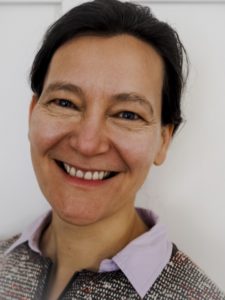
Romance Linguistics and French at the University of Frankfurt (1997-2007), and at Southampton University, UK (2007-2013). She has been appointed as Associate Professor in Teacher Education, Learning and Diversity at the University of Luxembourg in 2014. She is a sociolinguist and ethnographer specialising in research on multilingualism and multimodality, particularly in contexts of teaching and learning in linguistically, socially and culturally diverse contexts. She has been involved in collaborative research on French Adult Literacy in Canada, Italian-German Biliteracy in Germany and culturally sensitive education with Inuit in Ottawa/Canada. She is director of the Master in Learning and Communication in Multilingual and Multicultural Contexts where she focusses on visual, arts-based methodologies and digital literacies, in view of developing collaborative approaches to teaching and learning, inspired by new materialist conceptual frameworks in educational research.
Prof. Dr. Jeanne E. Glesener
FHSE, University of Luxembourg, Migration and Inclusive Societies (MIS), University of Luxembourg
Jeanne E. Glesener is associate professor in Luxembourgish Literature and Head of the Institute of Luxembourgish language and literature at the 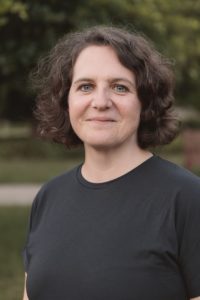 University of Luxembourg. Her research and publications cover Luxembourgish literary and cultural history, small literatures in Europe and migration literature in Europe.
University of Luxembourg. Her research and publications cover Luxembourgish literary and cultural history, small literatures in Europe and migration literature in Europe.
Nicole Holzapfel-Mantin
FHSE, University of Luxembourg, Migration and Inclusive Societies (MIS), University of Luxembourg
Nicole is a research and development specialist with a background in political science and human geography.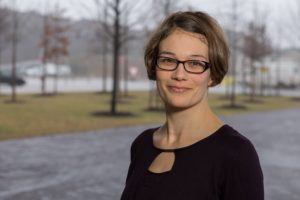
Generously and competently supported by the Media Centre of the University of Luxembourg
IMISCOE
External



